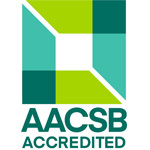26th in the UK
for overall subject in ‘Accounting and Finance’ (Guardian University Guide 2025)
16th in the UK
for Graduate prospects (Complete University Guide 2025)
22nd in the UK
in ‘Accounting and Finance’ for value added reflecting the enhancement to the student academic performance (Guardian University Guide 2025)

Discover practical finance degrees at the ICMA Centre
If you want to work in trading, investment banking or finance, the International Capital Market Association (ICMA) Centre provides you with everything you need for a wide range of careers within the financial markets or the broader corporate world.
Our uniquely designed degrees integrate the latest theory and research with practice, as you delve deeper into your specific interests and specialise your knowledge to equip you with the right skills for your future career.
Transformative Placement Experiences: Henley Undergraduates Share Their Placement Journey
Henley undergraduate students have had transformative placement experiences, shaping their career paths and personal growth. Hear the valuable lessons they have learnt, the challenges they have overcome, and some tips they offer for future candidates aiming to make the most of their placements.
Benefit from our partnerships with professional accreditation bodies
The ICMA Centre is part of the CFA Institute University Affiliation Program. This partnership shows that our university curriculum is closely linked with professional practice and is well-suited to preparing students to sit for the three levels of CFA exams.


Learn from world-renowned academics and industry practitioners in exceptional facilities
Our team of internationally-recognised and industry-experienced staff deliver superb, distinctive teaching to ensure that you have all the skills to thrive in this fast-paced industry.
You will make use of our three dealing rooms, all equipped with the latest industry simulation software and supported by Refinitiv and Bloomberg terminals, as you:
- Learn the secrets of trading.
- Build your own asset portfolio.
- Develop your financial analysis skills by processing complex data.
- Gain useful exposure to a 'real-life' market setting.

Study at an elite business school with a worldwide reputation for excellence
Part of the University of Reading, Henley Business School is truly international institution with over 7,000 students from more than 100 countries, and nearly 100,000 alumni from 160 countries.
Our academics and distinguished industry experts will help you gain valuable skills relevant for many fast-paced industries.
No matter what degree you choose to study at Henley, you can be sure that you are laying a strong foundation for your future career.
Discover your community at our stunning Whiteknights campus
Based at the University of Reading's Whiteknights campus, we have strong working relationships with companies, and host regular events where you can hear from and network with industry leaders.
- Benefit from the support of our experienced and expert academic staff.
- Experience industry simulation settings such as our ICMA Centre trading rooms.
- Live and study just a 30-minute train journey away from London.
- Receive dedicated support from our award-winning careers team.
Feel confident in the high quality teaching from a triple-accredited business school
We are proud to be in the top 1% of global business schools to hold triple-accredited status from the leading UK, European and US accrediting bodies:
- Association of MBAs (AMBA)
- European Foundation for Management Development (EQUIS)
- Association to Advance Collegiate Schools of Business (AACSB)
Our triple-accredited status is a result of the quality and high standards of our courses and faculty, and means you can be confident of the high standard of teaching you will receive.




Prepare for your successful career
The ICMA Centre provides extensive services and support to help set a strong foundation for your future career:
- All of our undergraduate programmes have employability integrated within them.
- Seize work experience opportunities and access our extensive business relationships.
- Gain valuable skills ready for your post-degree journey with interviewing practice and in-depth CV workshops.
- Receive specialist support from our dedicated Career Development Service.
Banks, large financial institutions and smaller boutique finance houses around the world recruit our graduates every year for their rich practical knowledge and strong technical skills.

Join our global network of international alumni
At Henley Business School, you will join our network of business professionals who know where you've come from and where you want to be.
We have more than 97,000 alumni in 160 countries and have staff and students representing more than 100 nationalities. You’ll also have access to our award-winning careers service up to 4 years after graduating.
This connection is lifelong, and only gets better once you graduate.


